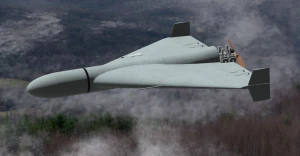
Peace Summit opponents will attempt to seize initiative
At the end of the Swiss conference, President Zelensky told us what everyone wanted to hear
"Preparing for that day will take months, not years. And when the plan is ready, and every step is worked out, then the way will be opened for the second Peace Summit, and therefore for the end of the war, as well as for a just and lasting peace."
Months, not years... However, things may not go as expected or as planned. Because the context changes.
An example of this was the recent conference, which we pretentiously called the Global Peace Summit. It was conceived 2 years ago as the final event of the military-diplomatic process, which was then called the "Ukrainian counter-offensive". In November 2022, at the G20 summit in Indonesia, President Zelenskyy unveiled 10 points of the "Ukrainian Peace Formula". This formula could be applied only after military and diplomatic victories. The counter-offensive of summer 2023 failed, and we have been on the defensive since late autumn last year. And diplomatic victories without military ones are very rare in history.
''The first Global Peace Summit was postponed several times. It was, in fact, the fifth meeting of the process initiated by national security advisers. The most successful of these meetings was the round in Saudi Arabia, which managed to attract China. It is a pity that what the Saudis succeeded in doing, the Swiss failed.''
However, the disconnect between the military and diplomatic tracks had already gone so far that we could not hope for any significant success. The event could have been postponed until the next victory, but obviously, the resources already spent were a pity, and our Swiss partners were far ahead in terms of organisation and process and the event itself. Postponement would have been perceived as an admission of defeat.
The Swiss, by the way, did an excellent job of reminding the world of their diplomatic capabilities as a mediator and a traditionally neutral country. In terms of technology and procedure, the conference was flawless. In terms of results (for Ukraine), it was rather limited.
The protocol photo (truly grandiose), the final communiqué (modest but fair) and the claim to ownership of the initiative (plans for the second summit) are positive results.
''The main goal of gaining the support of the so-called Global South was not achieved. Key BRICS member states either did not attend (China) or did not sign the communiqué (India, Brazil, South Africa). For reasons that are not very clear, Jordan and Iraq even withdrew their signatures. And it is unlikely that this was due to Russian pressure. China? Saudi Arabia? Because of Israel?''
Nevertheless, let's move on. Ukraine has made a bid to own the diplomatic initiative. It even announced its readiness to invite Russia to the next meeting under certain conditions. To this end, the Swiss are ready not only to share the results of the conference with Moscow and Beijing, but also to invite Putin to their territory, despite the ICC's arrest warrant. Provided that the next summit is also held in Switzerland. Which is unlikely. The Kremlin has already called the Swiss Confederation an enemy country.
How will the opponents respond? By trying to seize the initiative. The Sino-Brazilian plan (6 points instead of 12) may be updated in late summer or early autumn. Whether at the BRICS summit or the SCO summit, China has not yet decided. And the dates have not yet been determined. What is clear is that the 15th BRICS summit will be held in the capital of Tatarstan (Kazan). And the SCO summit will be held on 3-4 July in Astana (Kazakhstan). That is, before the 75th NATO summit in Washington (9-11 July).
''So China has a great temptation to challenge. Both the United States and NATO, and the West in general. At the diplomatic level, this means leadership (or moderation) in the process of ending the Russian-Ukrainian war on Russia's terms. However, whether it will be possible to seize the initiative will also depend on other BRICS or SCO partners.''
Indian Prime Minister Modi recently attended the G7 summit and even met with Zelenskyy. A representative of India attended the Swiss conference, but did not sign the communiqué. The official explanation is that they want to maintain ties with all parties to the conflict. But we understand that India's benefit lies not in the diplomatic but in the economic sphere - cheap Russian oil. The Moscow-Beijing-New Delhi triangle is essentially the outline of the whole of Eurasia. New Delhi needs Moscow to balance Beijing. Until the West offers India an alternative, and most importantly, an effective balancer, or, for example, a massive withdrawal of Western capital from China to India, it will manoeuvre.
Soon we will see what trajectory the processes initiated by the Global Peace Summit, which turned out to be a semi-global summit, not really a summit and not about peace at all, will follow.
Personally, I do not rule out that this is the beginning of a global polarisation of forces along the China-USA line. This means the formation of blocs and global confrontation. Europe (and Ukraine in it) will gravitate towards the US, Russia and its allies and partners will gravitate towards China. And India will look for itself in the renewal of the non-aligned movement.
At best, this is a new Cold War for decades. At worst, it is a transition from the economic confrontation that has already begun to the opening of new theatres of war. But this is another story.
About the author. Volodymyr Horbach, political analyst at the Institute for Euro-Atlantic Cooperation, expert on foreign and domestic policy of Ukraine.
The editors do not always share the views expressed by the authors of the blogs.



- News











































